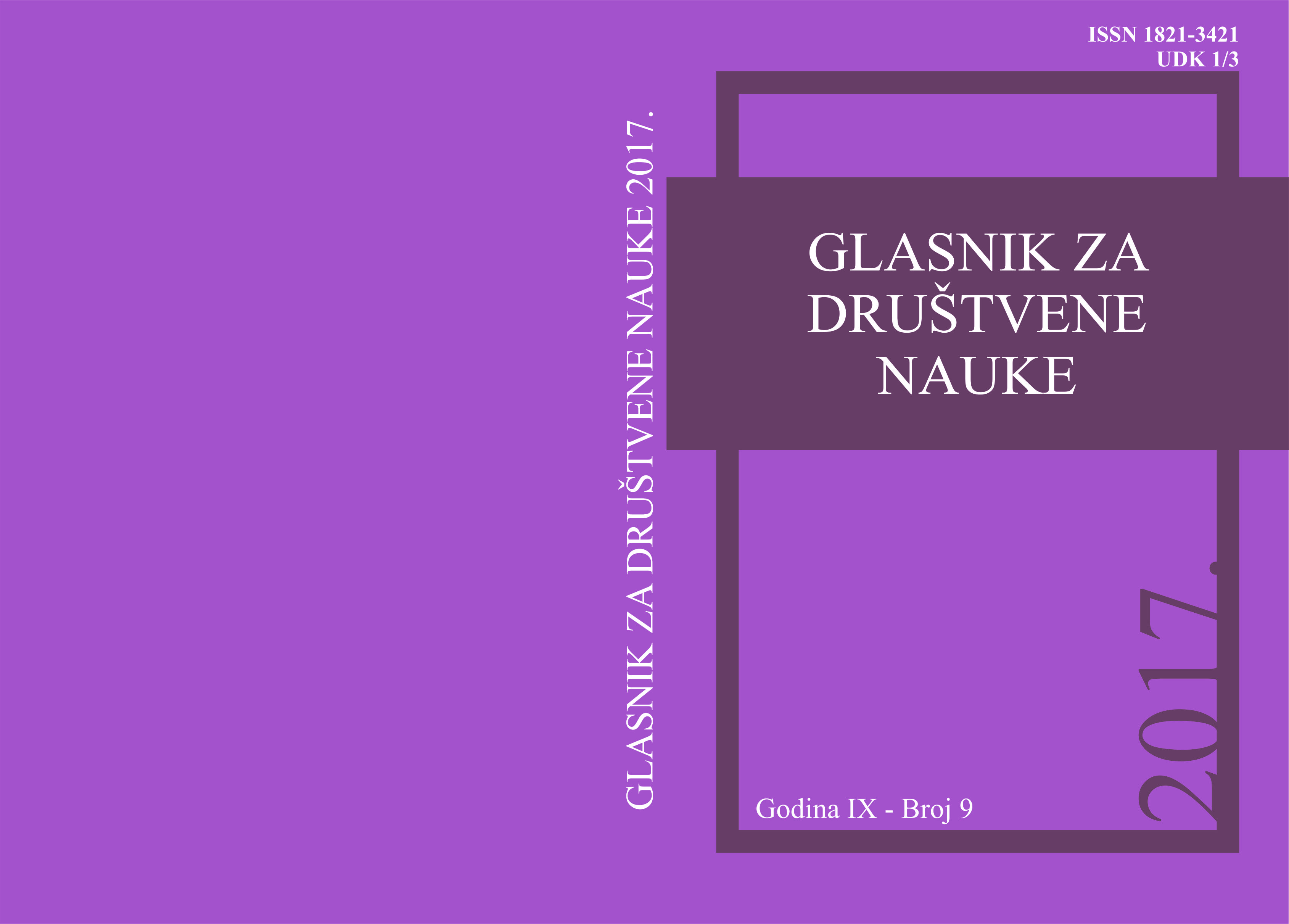UTICAJ INFORMACIONIH TEHNOLOGIJA U OBLASTI MENADŽMENTA LJUDSKIH RESURSA U VLADINIM ORGANIMA
Ključne reči:
menadžment, nova rešenja, javna uprava, usluge, resursiApstrakt
U sadašnjem trenutku, opšta javna uprava nudi svoje usluge poslovnim sistemima i građanima ne samo elektronskim putem, već i putem mobilnih uređaja. U ovom radu bavimo se inovativnim oblicima poslovanja javne uprave i načinima pružanja usluga svojim klijentima. Predstavićemo novu, osavremenjenu javnu upravu koja, kroz nove načine poslovanja, donosi rešenja kojima se obezbeđuje zadovoljstvo korisnika. U radu nastojimo da pratimo izazove sa kojima se e-uprava susreće i ukazujemo na njenu povezanost sa novim tehnologijama i novim stilom usluživanja klijenata. Novi način poslovanja e-uprave neraskidivo je povezan sa zahtevom za prihvatanje promena, kao i upravljanjem tim promenama. Modifikacija počinje onda kada opšta javna uprava počne da prihvata suprotan pristup koji se kasnije menja u novi stil ponašanja i usluživanja. Stoga, kako bi ovaj sistem bio uspešan, potrebno je da ova “nova” javna uprava ponudi jedinstven lanac usluga koji će, pre svega, biti efikasan, ekonomičan i fleksibilan.
Reference
2. Ansell, C., & Gash, A. (2008). Collaborative governance in theory and practice. Journal of public administration research and theory, 18(4), 543-571.
3. Bhattacharya, D., Gulla, U., & Gupta, M. P. (2012). E-service quality model for Indian government portals: citizens' perspective. Journal of Enterprise Information Management, 25(3), 246-271.
4. Gandhi, S., & Cross, C. (2001, October). E-government initiative at city of Orlando: Current trends and future directions. In Proceedings of the URISA conference, 1-12.
5. Grover, V., Jeong, S. R., & Segars, A. H. (1996). Information systems effectiveness: The construct space and patters of application. Information & Management, 31(4), 177-191.
6. Hamilton, S., & Chervany, N. L. (1981). Evaluating information system effectiveness-Part I: Comparing evaluation approaches. MIS quarterly, 55-69.
7. Hawkins, C. V. (2010). Competition and cooperation: Local government joint ventures for economic development. Journal of urban affairs, 32(2), 253-275.
8. Kaylor, C. H. (2005). E-government. The next wave of e-government: The challenges of data architecture. Bulletin of the American Society for Information Science and Technology, 31(2), 18-22.
9. Klase, K. A., & Song, S. G. (2000). Evaluating the influence of the county manager form of government on county conflict. Public Administration Quarterly, 286-304.
10. Klischewski, R. (2006). Ontologies for e-document management in public administration. Business process management journal, 12(1), 34-47.
11. Lambin, E. F. (2005). Conditions for sustainability of human–environment systems: Information, motivation, and capacity. Global Environmental Change, 3(15), 177-180.
12. Margerum, R. D. (2002). Collaborative planning: Building consensus and building a distinct model for practice. Journal of planning education and research, 21(3), 237-253.
13. Moon, M. J., Lee, J., & Roh, C. Y. (2014). The evolution of internal IT applications and e-government studies in public administration: Research themes and methods. Administration & Society, 46(1), 3-36.
14. O'Leary, R., & Bingham, L. B. (Eds.). (2009). the collaborative public manager: New ideas for the twenty-first century. Georgetown University Press.
15. Pierce, J. C., Lovrich Jr, N. P., & Moon Jr, C. D. (2002). Social capital and government performance: An analysis of 20 American cities. Public Performance & Management Review, 25(4), 381-397.
16. Radivojevic, M., Tepsic, M., & Pejic, R. Managing Human Resources in Public Administration with Special Emphasis on Staff Training from the Office of Operations Using Knowledge Base and Ontology.
17. Savvas, I., & Bassiliades, N. (2009). A process-oriented ontology-based knowledge management system for facilitating operational procedures in public administration. Expert Systems with Applications, 36(3), 4467-4478.
18. Smithson, S., & Hirschheim, R. (1998). Analysing information systems evaluation: another look at an old problem. European Journal of Information Systems, 7(3), 158-174.
19. Tambouris, E., & Wimmer, M. (2005). Online one-stop government: a single point of access to public services. Electronic government strategies and implementation (pp. 115-144). IGI Global.
20. Thomas, J. C., & Streib, G. (2003). The new face of government: citizen-initiated contacts in the era of E-Government. Journal of public administration research and theory, 13(1), 83-102.
21. Varun Grover, T. H. D. (2001). General perspectives on knowledge management: Fostering a research agenda. Journal of management information systems, 18(1), 5-21.


